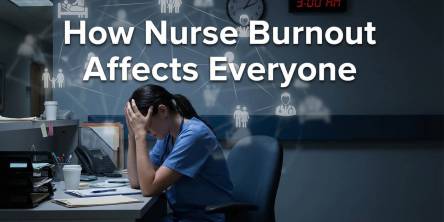How Big Data Affects the Healthcare Industry

Unless you have been living under a rock, you know that the world has experienced a massive surge in the quantity of data it generates. Now, this shift has had different ramifications for different industries. But if there is one thing in common to all of them through this period of change, it has been their need for tools that can help companies make sense of this data instead of letting it all go to waste. As the cliché goes — Data is the new oil! And, driven by this shift, has come up with a plethora of solutions and tools to help make the best use of all the data we are generating. There is artificial intelligence, machine learning, and whatnot, but when it comes to information, there is no modern technology that is as important as Big Data.
So potent is this technological novelty that researchers and experts all over the world have put it to use in more fields and industries than you would be able to guess. One of the essential applications of Big Data has been in the healthcare industry. Why? Because no other sector has been able to leverage and pioneer as much change as healthcare has with Big Data. It becomes even more critical in view of the fact that medical records and medical data are now being increasingly digitized. And let us not forget all about the humongous amount of data the industry generates every single day. Suffice it to say that Big Data fits right in this industry. But one is still bound to wonder precisely what change Big Data has enabled in the healthcare industry and how it has come to be so crucial in this context. So, we put together a list to help you understand exactly that.
1. Better monitoring and avoid errors: Thanks to IoT, doctors now have access to more crucial data about their patients. However, given the vast amount of data everyone generates and that all of it can be important in the medical context, it becomes imperative to peruse this data. What big data then do is execute an in-depth analysis of all this data, including symptoms, existing conditions, prescriptions, and more to give the doctor an extensive overview of their patient, thus enabling improved health care. This analysis can also be used to ensure that patients’ medications don’t hurt them because of unforeseen drug interaction, etc.
2. Enhanced recommendations system: When doctors have access to an in-depth view of their patients, including all and any ailments, medications, existing conditions, and more. They could offer better and more informed recommendations to them about diagnostic tests, remedies, treatment plans, and so much more. And it can also be used for patients, i.e., such systems can be used to deliver recommendations for physicians, specialists, and more to patients based on their requirements, preferences, filters, and more.
3. Improved performance: Now, everyone knows that hospitals, as well as other healthcare facilities, can be pretty chaotic. That’s just how things tend to be in this field. However, this can prove to be quite a problem in the context of emergency rooms that could end up impeding the critical goal of emergency rooms, i.e., tend to patients in need of urgent care. But big data can help here too — an analysis of the emergency room related data can be leveraged to adapt ER workflows to enhance its efficiency and, with it, its performance.
There is no doubt that big data stands to help healthcare in more than one way. And there is a tool one can use to effect better change: Surveys. Yep, healthcare survey tool development can empower the company to gain a better understanding of the attitudes, opinions, and experiences of people they serve and use it to identify areas of inefficacy and so much more.
Similar Articles
Discover the benefits, challenges, and future of locum medical jobs. Learn how locum recruitment agencies support flexible, diverse career opportunities for healthcare professionals seeking dynamic work environments.
Burnout in the healthcare environment is a significant and growing crisis.
NAD+ therapy restores cellular energy, enhances metabolism, and promotes anti-aging by supporting DNA repair and improved overall vitality.
Seasonal Affective Disorder (SAD) is a type of depression linked to seasonal changes, most commonly seen during the late fall and winter months when sunlight exposure decreases
Enhance sleep comfort and support with a mattress topper queen. Discover how the right topper improves pressure relief, temperature control, and rest.
If your mind refuses to be quiet the moment your head touches the pillow, welcome to the club. Overthinking at night has silently become nearly synonymous with modern forms of insomnia.
Discover how longevity clinics use key biomarkers to assess ageing, improve health, and guide personalized wellness strategies for a longer, healthier life.
Halitosis, sometimes known as foul breath, affects millions of individuals worldwide and can cause humiliation, influencing everyday interactions and confidence.
In the modern world, maintaining good health often feels like a constant challenge. Between busy lifestyles, sedentary habits, and lack of motivation, many people find it difficult to stay consistent with exercise, diet, or wellness practices.









